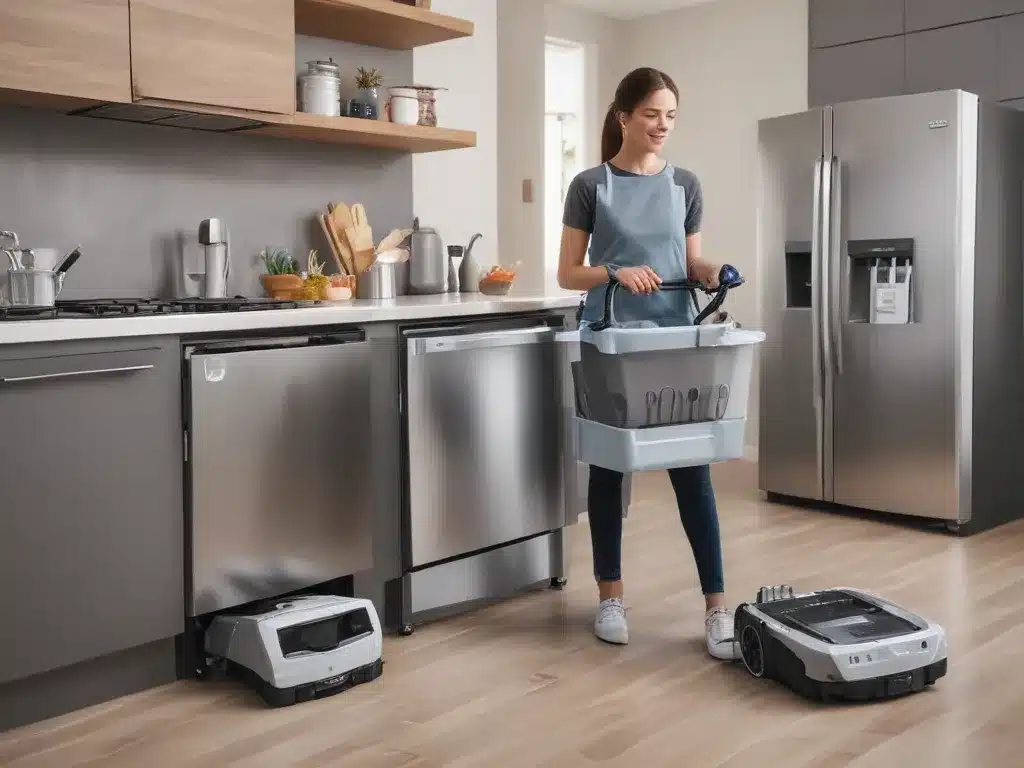Introduction
Chores – they are the bane of our existence, the never-ending cycle of repetitive tasks that consume our time and energy. From cleaning to laundry to grocery shopping, these mundane tasks can quickly drain us, leaving us feeling overwhelmed and stressed. But what if I told you that there’s a solution that can alleviate the burden of chores and give you back precious hours in your day? Enter automation.
What is Automation?
Automation refers to the use of technology to perform tasks with minimal human intervention. It involves the creation of systems and processes that can operate independently, freeing up our time and resources for more important or enjoyable activities. In the context of household chores, automation can take many forms, from robotic vacuum cleaners to smart home systems that control appliances and lighting.
The Benefits of Automation for Chores
Time-Saving
One of the biggest advantages of automating chores is the time it saves. Instead of spending hours cleaning, folding laundry, or running errands, automated systems can handle these tasks efficiently and consistently. This means more time for work, hobbies, or quality time with loved ones.
Consistency and Efficiency
Automated systems are designed to perform tasks with precision and consistency. Unlike humans, who can become fatigued or distracted, automated systems can maintain a high level of performance without compromising on quality. This ensures that chores are completed thoroughly and efficiently, every single time.
Reduced Physical Effort
Many household chores require physical exertion, which can be challenging for individuals with disabilities, injuries, or age-related limitations. Automation can significantly reduce the physical effort required, making it easier to maintain a clean and organized living space without putting undue strain on the body.
Improved Quality of Life
By freeing up time and reducing the burden of mundane tasks, automation can improve our overall quality of life. With less time spent on chores, we can focus on the things that truly matter, such as pursuing our passions, spending time with loved ones, or simply enjoying a well-deserved break.
Examples of Automated Chore Solutions
Robotic Vacuum Cleaners
Robotic vacuum cleaners are one of the most popular and widely adopted forms of automation for household chores. These devices can navigate around your home, cleaning floors and carpets with minimal human intervention. Many models even come equipped with advanced features like self-emptying dustbins and mapping capabilities, making them even more efficient and hands-off.
Smart Home Systems
Smart home systems are a comprehensive solution for automating various aspects of your home, including chores. These systems allow you to control and automate appliances, lighting, and even security systems using voice commands or a smartphone app. For example, you can schedule your washing machine to run during off-peak hours or set your robot vacuum to clean while you’re at work.
Laundry-Folding Robots
While still in the early stages of development, laundry-folding robots are a prime example of how automation can tackle even the most mundane and tedious of chores. These robots use advanced computer vision and machine learning algorithms to identify and fold various types of clothing, saving you the time and effort of doing it manually.
Automated Grocery Shopping and Delivery
Online grocery shopping and delivery services have revolutionized the way we tackle the chore of grocery shopping. With just a few clicks, you can have your groceries delivered right to your doorstep, eliminating the need to navigate crowded supermarkets and carry heavy bags.
Overcoming Challenges and Embracing Automation
While automation offers numerous benefits, it’s important to address potential challenges and concerns. One common concern is the initial investment required to purchase automated systems. However, it’s worth considering the long-term savings in time and effort that automation can provide.
Another challenge is the potential loss of human touch and personalization in certain tasks. For example, some may feel that a robot vacuum cleaner cannot match the attention to detail provided by a human cleaner. In these cases, it’s important to strike a balance and consider using automation for routine tasks while still maintaining human involvement for more specialized or personal tasks.
Additionally, there may be concerns about the environmental impact of automated systems, particularly in terms of energy consumption and waste. However, many modern automated solutions are designed with sustainability in mind, incorporating energy-efficient components and recyclable materials.
Conclusion
Automation is a game-changer when it comes to taking the hassle out of chores. By leveraging the power of technology, we can streamline repetitive tasks, freeing up our time and energy for more meaningful pursuits. From robotic vacuum cleaners to smart home systems, the possibilities for automating chores are vast and ever-expanding.
While there may be initial challenges to overcome, the benefits of automation are undeniable. By embracing this technology, we can not only simplify our daily lives but also improve our overall quality of life. So why not take the first step towards a more automated and hassle-free future? Your time and sanity will thank you.







